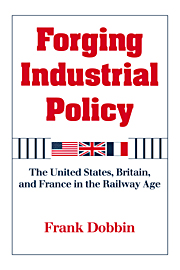3 - France
Published online by Cambridge University Press: 05 June 2012
Summary
Introduction
Scholarship on nineteenth-century France is characterized by a peculiar sort of schizophrenia. On one side stand those, from Alexis de Tocqueville (1955) to Simon Schama (1989), who see surprising continuity in French political traditions despite the remarkable transformations of that century. France began and ended the century with a centralized, professionalized, state bureaucracy dedicated to orchestrating the nation's military, political, and economic life from Paris. On the other side stand those, from George Lefebvre (1947) to Eric Hobsbawm (1962), who see a radical transformation of the nation's political ideals and very raison d'être. France began the century as a nation of subjects oriented to serving the wealth and power of their ruler and ended the century as a nation of citizens oriented to the practice of democracy.
What was most remarkable about French railway policy during this age of revolution was its constancy. During the infancy of the railway industry France was in one moment a monarchy, in the next a republic, and in the next an empire. Nonetheless, France pursued a coherent strategy for promoting and controlling the railways that launched the transition from the Colbertian tradition of mercantilism to a modern industrial policy paradigm based on state concertation. Soon after railway technology appeared in France, the state had made the key strategic decisions about how to govern the industry that would guide policy through the twentieth century. How could France's industrial policy paradigm demonstrate such constancy when the political order was in such flux?
- Type
- Chapter
- Information
- Forging Industrial PolicyThe United States, Britain, and France in the Railway Age, pp. 95 - 157Publisher: Cambridge University PressPrint publication year: 1994

